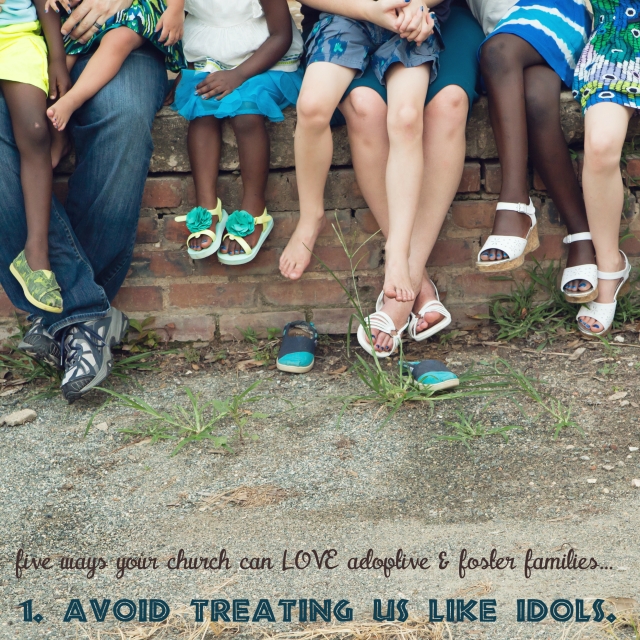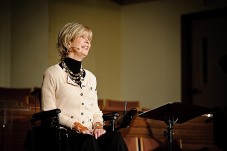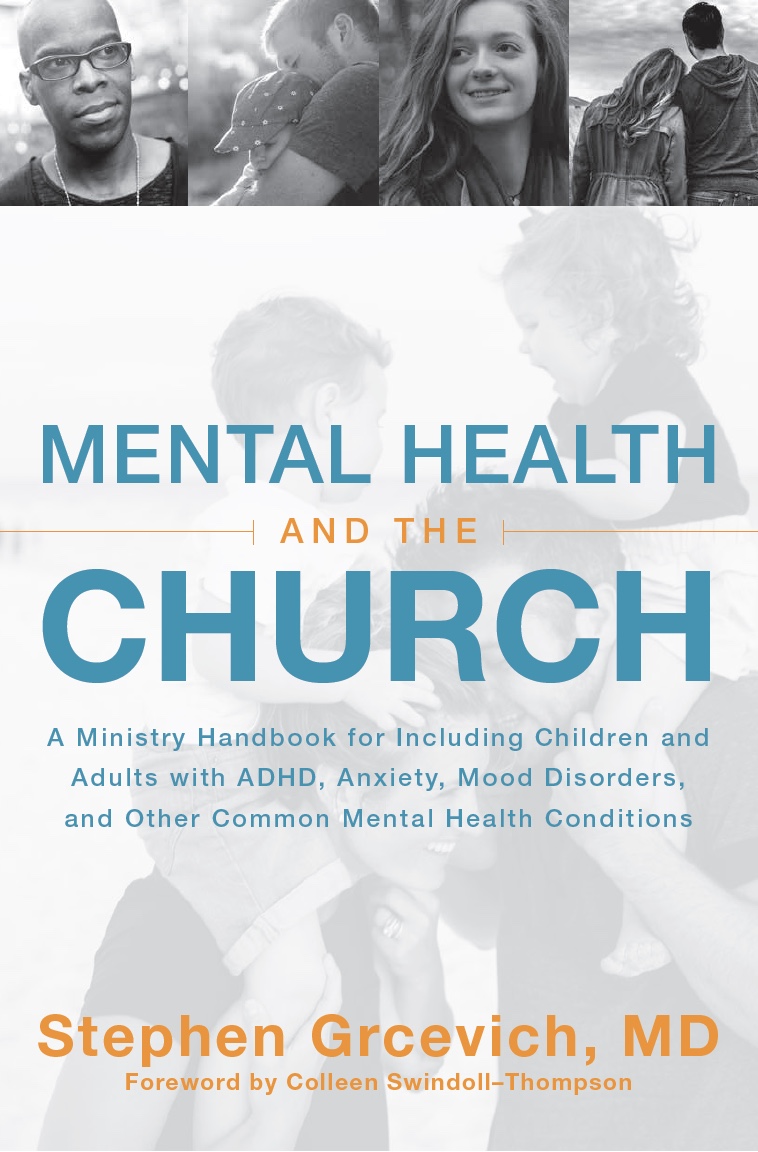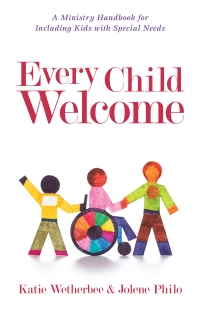 This is the third post in a series by Shannon Dingle examining adoption and the church. In addition to Shannon’s role as a Key Ministry Church Consultant, she is a co-founder of the Access Ministry at Providence Baptist Church in Raleigh, NC. Today, Shannon looks at the first of five ways churches can love their adoptive and foster families…Avoid Treating Us Like Idols.
This is the third post in a series by Shannon Dingle examining adoption and the church. In addition to Shannon’s role as a Key Ministry Church Consultant, she is a co-founder of the Access Ministry at Providence Baptist Church in Raleigh, NC. Today, Shannon looks at the first of five ways churches can love their adoptive and foster families…Avoid Treating Us Like Idols.
Before we brought home our daughter with cerebral palsy from Taiwan, I read all the books. We talked to other adoptive parents. We completed every educational module required by our social worker. We felt prepared.
But nothing prepared us for how isolated we would feel when we came home.
Yes, people brought meals and coffee and notes of encouragement and hugs and so on. But when we struggled, I didn’t know how to reach out. I felt like we had been put up on a pedestal by so many:
Look at the sacrifices they made to give this child a family – they’re amazing!
Her special needs are a complete unknown, and they still said yes. What saints!
When they adopted that child, they rescued him from death.
While each of those statements might hold a nugget of truth, they set us up to be superheroes or saints or something else that we simply aren’t. We’re human. We struggle. And when we’re up on a pedestal that others have built for us, we’re set apart from the rest of the community. That’s not what God’s design is for the church.
Furthermore, our kids aren’t charity cases, and we don’t want them to feel like they are or were. As “Orphan Sunday” approaches in a few weeks, consider how your church might be sensitive to the children, youth, and adults in your congregation who were once unparented themselves, be it in a hospital nursery, foster care environment, orphanage, or elsewhere. When their parents are being elevated with comments about what a great thing they did, then those children may feel like they are less deserving of their families than a biological child might be.
Yes, our families might have been made differently and even look differently than the majority of families in your church, but we’re just families. Our path to parenthood (either in general or of one or more of our children) might not be the same as yours, but we have more in common than you might think.
In the next few posts, I’ll write about some unique aspects of our families that might require some modifications in ministering to us. But before I dive into those, remember that our lives involve the same perfectly imperfect aspects as any other family: dirty diapers, homework, bedtime battles, meal planning, and mountains of laundry. And we yell and cry and fight and fail and apologize just like you do.
We aren’t rescuers or heroes or martyrs, not any more than all the other parents who love and sacrifice for their children. Let us be on common ground with you, sinners at the foot of the cross made saints before the throne of grace. Instead of worshiping us, welcome us into community with you as we glorify the One True God together.
***********************************************************************************************************
 Join keynote speaker Joni Earackson Tada and 20+ leaders representing the scope of the disability ministry movement this coming November 12-13 for Inclusion Fusion 2014, Key Ministry’s FREE, worldwide disability ministry web summit. Engage in interactive chat with many of our speakers and watch each presentation at the time of day that works best for you in the environment in which you’re most comfortable. Click here for FREE registration.
Join keynote speaker Joni Earackson Tada and 20+ leaders representing the scope of the disability ministry movement this coming November 12-13 for Inclusion Fusion 2014, Key Ministry’s FREE, worldwide disability ministry web summit. Engage in interactive chat with many of our speakers and watch each presentation at the time of day that works best for you in the environment in which you’re most comfortable. Click here for FREE registration.





Lovely! Sadly via internet groups, I know too many adoptive families who adopted children with trauma issues, and may imagine themselves as martyrs… They don’t recognize the challenges that many biological families face – sometimes with the very same early trauma issues (that may arise from birth trauma, natural disaster, parental illness, the child’s early health issues, unavoidable separation, etc.) Also, adoption and fostering is not the only place where there is that tendency to think someone is a “saint” or “hero”. I think it simply happens when someone else’s mission is very different from the mission God gave us. I can’t imagine ministering to prisoners, or those with terminal diseases…I can’t fathom going to work with Ebola patients – to me THOSE are the saints. Loving my children, even the difficult ones, is just what gives me the deepest joy. But, there’s a quote I love that puts it all in perspective: “The place God calls you to is the place where your deep gladness and the world’s deep hunger meet.” Frederick Buechner
LikeLiked by 1 person
Love that quote!
LikeLike
Also, if you haven’t seen it yet, the second post in this series was all about trauma and attachment – definitely a topic that needs to be addressed if we want to love families well! https://drgrcevich.wordpress.com/2014/10/23/2-churches-should-become-trauma-and-attachment-informed/
LikeLike
There are many children living in homes who are not officially adopted. Family members raising children who are left alone, step-children merged into families of love, We can’t know everyone’s situation. I am very glad to have the fostered and adopted children in my family. Grateful for the love they bring to me. I wonder how I got so many loving people who just open their arms and enlarge their circle of love. Orphan Sunday could apply to many of us. So Celebrate the loving hearts of families around the world who open their hearts and homes to others.
LikeLike
With all due respect, Maxine, you might want to read #2 if you have not already. If you have not experienced trauma or attachment issues in the kids you sponsored/adopted, then it is more difficult to appreciate what some of us live hourly. I have two children adopted internationally. One has SIGNIFICANT issues. The other has none. The church is not equipped to help/handle families like ours. We had to leave our church family of 10 years because they couldn’t handle what we went through. They did not understand, and did not try. We were inadvertently ostracized, and we had been in leadership positions in the church. We loved that church…we love those people. Now, a year later, we are in a church that we like, but it’s not “home” to us. And yet, they are asking how they can help us. I’ll be using these series to try and educate them. I hope you never, ever experience what MANY of us in this adoptive world have experienced. It’s isolating.
LikeLike
I love the diversity in experiences in the adoption community, because there’s definitely a wide range. In these posts, I’m trying to balance the celebration of what is worthy of that, like Maxine acknowledges, with the support of children and families who aren’t being supported well in many churches, like Julie is rightly pointing out. Julie, this might be a good post to share with your church https://drgrcevich.wordpress.com/2014/11/06/when-its-scary-to-say-yes/ , and if they are receptive, please let those leaders know that I’m sincere when I offer the invitation for free consultation with Key Ministry. I’ve found that some churches are more open to hearing an outside voice, while others benefit from a confirming ally… either way, we’re here to support them so they can support you.
LikeLike
Pingback: To love adoptive and foster families, (4) let our kids be kids… | Church4EveryChild